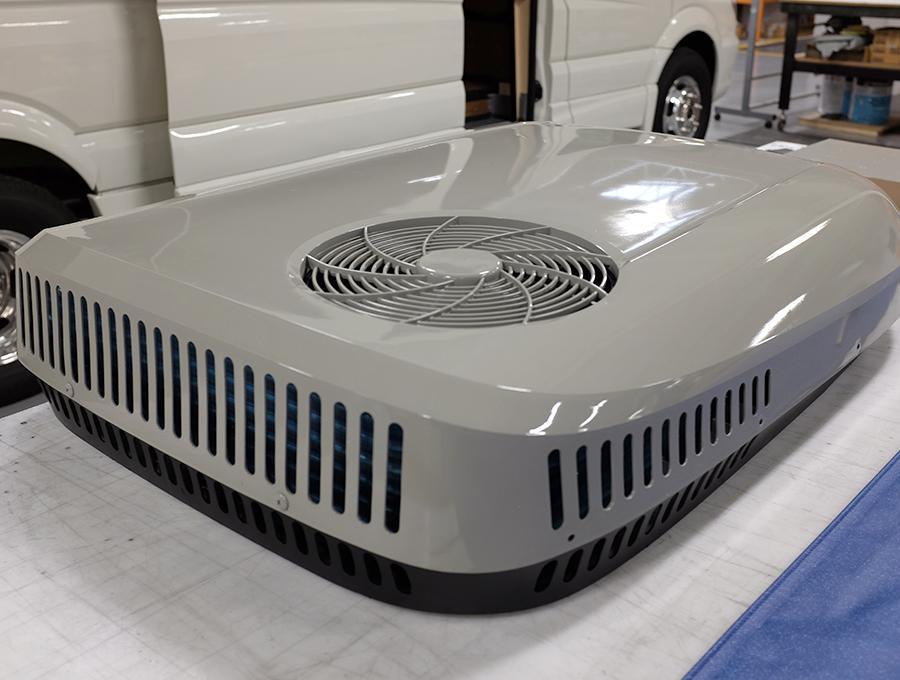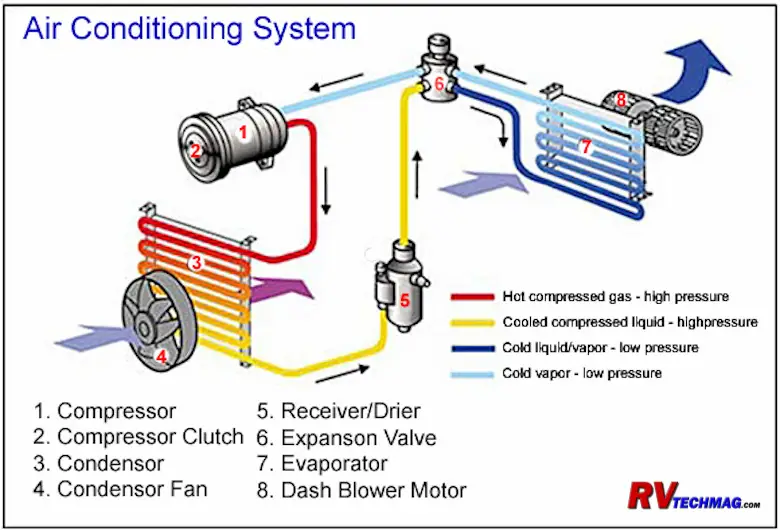When you travel in an RV, comfort is important. An RV air conditioning system helps keep the inside cool. This is especially true on hot summer days. In this article, we will explore how these systems work. We will also discuss the types available, maintenance tips, and more.
What is an RV Air Conditioning System?
An RV air conditioning system cools the air in your RV. It removes heat and humidity from the inside. This makes the space more comfortable. There are two main types of RV air conditioners:
- Roof-Mounted Units
- Portable Units
Roof-mounted Units
Roof-mounted units sit on the top of the RV. They are common in many RVs. These units can cool large spaces quickly. They usually run on electricity. Most roof-mounted units use a compressor to cool the air.
Portable Units
Portable units are smaller and easy to move. You can place them anywhere inside the RV. They are good for smaller spaces. However, they may not cool as effectively as roof-mounted units. Portable units can also run on electricity. Some models run on batteries too.
How Does an RV Air Conditioning System Work?
Understanding how these systems work is important. RV air conditioners use a refrigerant. This is a special fluid that absorbs heat. Here is a simple breakdown of how it works:
- The unit pulls warm air from inside the RV.
- The air passes over coils filled with refrigerant.
- The refrigerant absorbs the heat from the air.
- The cooled air is then pushed back into the RV.
This process continues until the desired temperature is reached. It is a simple cycle, but it works well.
Choosing the Right RV Air Conditioning System
Choosing the right air conditioning system is essential. Here are some factors to consider:
- Size of Your RV
- Climate Conditions
- Power Source
- Budget
Size Of Your Rv
The size of your RV matters. Larger RVs need more cooling power. Check the BTU rating of the unit. BTU stands for British Thermal Unit. Higher BTU means more cooling. For smaller RVs, a unit with lower BTUs is enough.
Climate Conditions
Consider the weather where you travel. If it’s hot and humid, you need a strong unit. Cooler climates may need less power. Think about where you go most often.
Power Source
Most RV air conditioners use electricity. Make sure you have enough power. Some units can run on batteries. Check your RV’s power system before buying.
Budget
Air conditioners come in various prices. Set a budget before shopping. Consider long-term costs too, like maintenance.
Maintaining Your RV Air Conditioning System
Regular maintenance helps your air conditioner work well. Here are some tips for keeping it in good shape:
- Clean or Replace Air Filters
- Inspect Coils and Fins
- Check the Drainage System
- Schedule Professional Maintenance
Clean Or Replace Air Filters
Dirty air filters reduce airflow. This makes the unit work harder. Clean or replace filters every month. This will help the system run efficiently.
Inspect Coils And Fins
Coils and fins can gather dirt too. Check them regularly. Clean them gently with a soft brush. This helps improve airflow and cooling.
Check The Drainage System
Your air conditioner needs to drain properly. Check for any clogs in the drainage line. Clear any blockages to prevent water damage.
Schedule Professional Maintenance
Consider having a professional check your system once a year. They can find issues you may not see. Regular maintenance can extend the life of your air conditioning system.


Common Problems with RV Air Conditioning Systems
Sometimes, air conditioning systems can have issues. Here are a few common problems:
- Not Cooling Properly
- Strange Noises
- Water Leaks
- Bad Odors
Not Cooling Properly
If your unit is not cooling, check the filters first. Dirty filters can block airflow. If the filters are clean, check the refrigerant levels. Low refrigerant can cause cooling issues.
Strange Noises
Listen for unusual sounds. Rattling or buzzing can indicate a problem. It may be a loose part or a failing motor. If you hear strange noises, have it checked.
Water Leaks
Water leaks can cause serious damage. Check the drainage system for clogs. If you see water pooling, it may be a bigger problem. Contact a professional for help.
Bad Odors
If you smell bad odors, check the filters. They may need cleaning or replacing. Bad smells can also come from mold or mildew. Make sure to keep the unit dry and clean.
Conclusion
An RV air conditioning system is important for comfort. It keeps the inside cool during hot trips. Understanding how it works helps you make good choices. Choose the right system for your RV and travel needs.
Regular maintenance is key to a long-lasting unit. Check filters and clean coils often. Address any problems quickly to avoid costly repairs. Enjoy your travels with a comfortable and cool RV!

